Tidal bloom.
Rising Tide has a steep hill to climb. Sid Meier's Civilization: Beyond Earth hasn't received the warmest of receptions by strategy fans, with many believing that the game feels more or less like Civilization V with a sci-fi wrapper around it. The litany of criticisms range from affinities being limited by technologies and leaders lacking personality, to a lack of incentive to trade with other civilizations and aliens being around just to be an irritation to exploration. Rising Tide addresses all of these issues by introducing hybrid affinities, ocean terrain, aquatic cities, and revamped diplomacy, transforming the game into a far more complete and distinct experience.
Rising Tide, as the title suggests, concentrates much of its attention on ocean terrain and water-based buildings and units. The variety of ocean tiles has been expanded tremendously, with a showering of basic resources (algae, plankton, shell, etc.), strategic resources, and resource pods spread throughout the sea. That means that approximately two-thirds of the map has been opened for settlement, providing far more flexibility and requiring a lot more thought into city placement and development.
Exploring the sea bed for resource pods and potential expedition opportunities is well-rewarded so long as there are tiles still left undiscovered. Artifacts, which take the form of cards, can be gathered from both these sources into your library and spent for minor boosts in science, food, production, and energy that greatly aids civilizations in the early game. Later down the road, it's better to wait until you collect a set of three artifacts which can be used collectively for bonus perks that impact all cities like enhanced city strike damage and for unlocks to special buildings and wonders for production.
Complementing this are aquatic cities which can be built on top of any water tile that isn't in deep ocean. As opposed to their land-based counterparts, aquatic cities have better health, higher trade yields using trade vessels, and stronger naval-unit production, balanced by lower overall city defenses and lower production rates for air and ground units. Since these aquatic cities float on water, they can also be moved to a nearby tile, potentially adding terrain into its jurisdiction, though citizens can still only work tiles that are up to three spaces away. However, since moving a city stalls production of units and buildings, and aquatic cities don't expand with culture production, you'll find that purchasing tiles around them may be better than sitting around for several turns waiting for it to move. Roads and magrails haven't been expanded either to be able to cross ocean tiles, so they're somewhat left behind in the dust.
The three affinities—Supremacy, Purity, and Harmony—have been made less rigid with the inclusion of hybrid affinities. Not only have the associated perks for each affinity been reworked, but you will earn additional bonuses for having high affinities in two different affinities at the same time. All of this is displayed in the new handy affinity color wheel that shows your affinity progress succinctly. Technologies have been recoded to show their affinity association more clearly, and many of them now boost two affinities at once instead of one so that you can choose technologies more freely. New hybrid units, like the Evolved Immortal and the Prime Xeno Cavalry, as well as new hybrid-based unit upgrades come along for the ride as well.
The other major overhaul in Rising Tide is the diplomacy system, complete with four new civilizations (the Middle-Eastern Al Falah, German INTEGR, Korean Chungsu, and British/Scandinavian North Sea Alliance), which has been entirely rewritten and revolves around the attainment of diplomatic capital. Think of diplomatic capital, which grows when you accept agreements and finish the construction of wonders and specific buildings, as baseline currency for establishing trade agreements and better relationships with other civilizations as well as bolstering your leader of choice with additional perks through traits. Your leader comes with four slots for personality traits, with one already pre-filled by your leader's unique starting ability. Using diplomatic capital, you can add additional traits from a wide selection that bestow more positive perks.
Each personality trait in turn comes with possible agreements which other civilizations can view and accept, which gives that civilization a small boon and gives yours additional diplomatic capital per turn. For a specific example, having the Insightful personality trait opens the trade agreement for “Scientific Grant Program” which gives another civilization a reduced cost for leaf technologies at the price of giving your civilization 15 diplomatic capital for every turn the agreement is active. The range of possible agreements is plentiful, but you can only have five active agreements at a time, so carefully searching and pruning the database for available agreements is key to victory.
The strength of an agreement depends on your relationship with the civilization at hand, netting further bonuses if you are Cooperating or Allied. Being at War or being Sanctioned removes all possibility of trade, so it's important to keep track of the political landscape as it shifts beneath your feet. However, spending diplomatic capital isn't enough to improve a relationship as you will also need to meet the civilization's standard of respect and fear. While fear is easily measured by your military strength relative to another civilization's, respect is defined by how well your civilization matches the political, economic, and military outlook of that civilization, as determined by their chosen personality traits. A leader with the Progressive trait, for instance, frowns upon civilizations with poor health, and you will be constantly reminded of whether another civilization respects you or not through short communiques almost every turn.
This overhaul of diplomacy has more upsides than downsides. Leaders now have clear personality traits that evolve over time and make them distinct from one another, and how diplomatic capital weaves with trade agreements, relations, and personality traits is conceptually solid and extremely open to player choice. Diplomatic capital can also be used to purchase units and buildings exactly like energy in case you have a surplus.
That said, being allied can be too costly since it includes an embedded defensive agreement that can drag you into needless wars, so it's in your favor to keep most of your relationships to cooperative. Simple one-on-one trade for resources and energy has been nixed altogether too, in favor of using trading vessels instead, which makes sense in practice but is far less precise in what is traded. Wars are now determined by War Score and can't control what the terms of the peace agreements will be.
The continual feed of communiques can turn into incessant nagging and complaining if you don't meet another civilization's standards, especially if you're intentionally trying to build your civilization in a different way than theirs. AI civilizations are fickle in general and dislike agreements that you break with them, even though they break agreements with you frequently and without hesitation. The option of asking other civilizations to stop settling near your civilizations is no longer available either, though they will be annoyed with you if you do the same. If there was the ability to send communiques in response, it would lessen the obstinately one-sided nature of relationships with other civilizations.
Last but not least, aliens have been given a more aggressive, unpredictable attitude. Ultrasonic fences no longer deter aliens as powerfully, so being hostile against the local wildlife will result in high alien resistance. New alien units—the amphibious makara, the sea-based ripper, and the smaller land-based scarabs—fill in some of the gaps in the alien species. Best of all, you can now leash aliens by learning Alien Lifeforms and Alien Domestication technologies, where your explorers can spend some health to sway a nearby alien to your side. With a bit of careful planning, you can turn an alien nest that was once a nuisance into a spawn point for a friendly army of aliens for protection. Aligning yourself with the Harmony affinity is longer as weak militarily as it was before.
Rising Tide enhances Sid Meier's Civilization: Beyond Earth to the point that it's difficult to imagine the game without it; in fact, the regular Civilization series should take a few cues from Rising Tide. Hybrid affinities, ocean terrain, diplomatic capital, agreements, and personality traits all improve player freedom and significantly raise the replayability of the game. Nearly every complaint with the base game has been handled with attention, though the new diplomacy overhaul comes with its own unfortunate issues. But that aside, Rising Tide is an essential purchase for Civilization fans who want to give Beyond Earth a well-earned second chance.
-
Hybrid affinities and units
-
Ocean terrain and aquatic series
-
Artifacts and resource pods on water
-
Overhauled diplomacy system and diplomatic capital
-
Personality traits and trade agreements
-
New alien units and alien leashing
-
Communiques can turn into a nuisance
-
Can't trade resources and energy one-on-one
-
Allied relationships can lead to needless wars
-
Roads and magrails far less important with aquatic cities
Rising Tide Screens
-
Rising Tide Screens #1
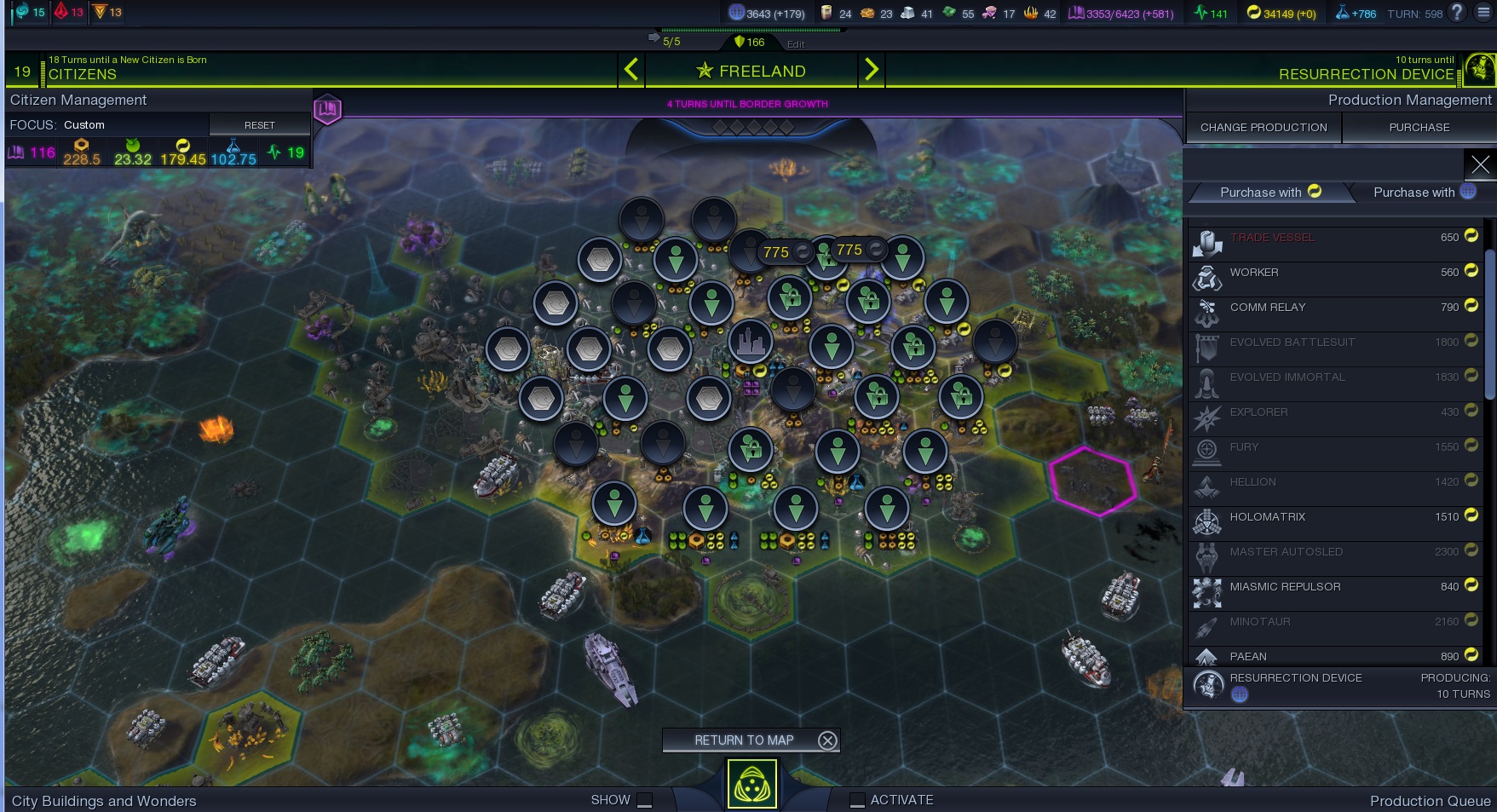 Freeland and some building options.rn
Freeland and some building options.rn -
Rising Tide Screens #2
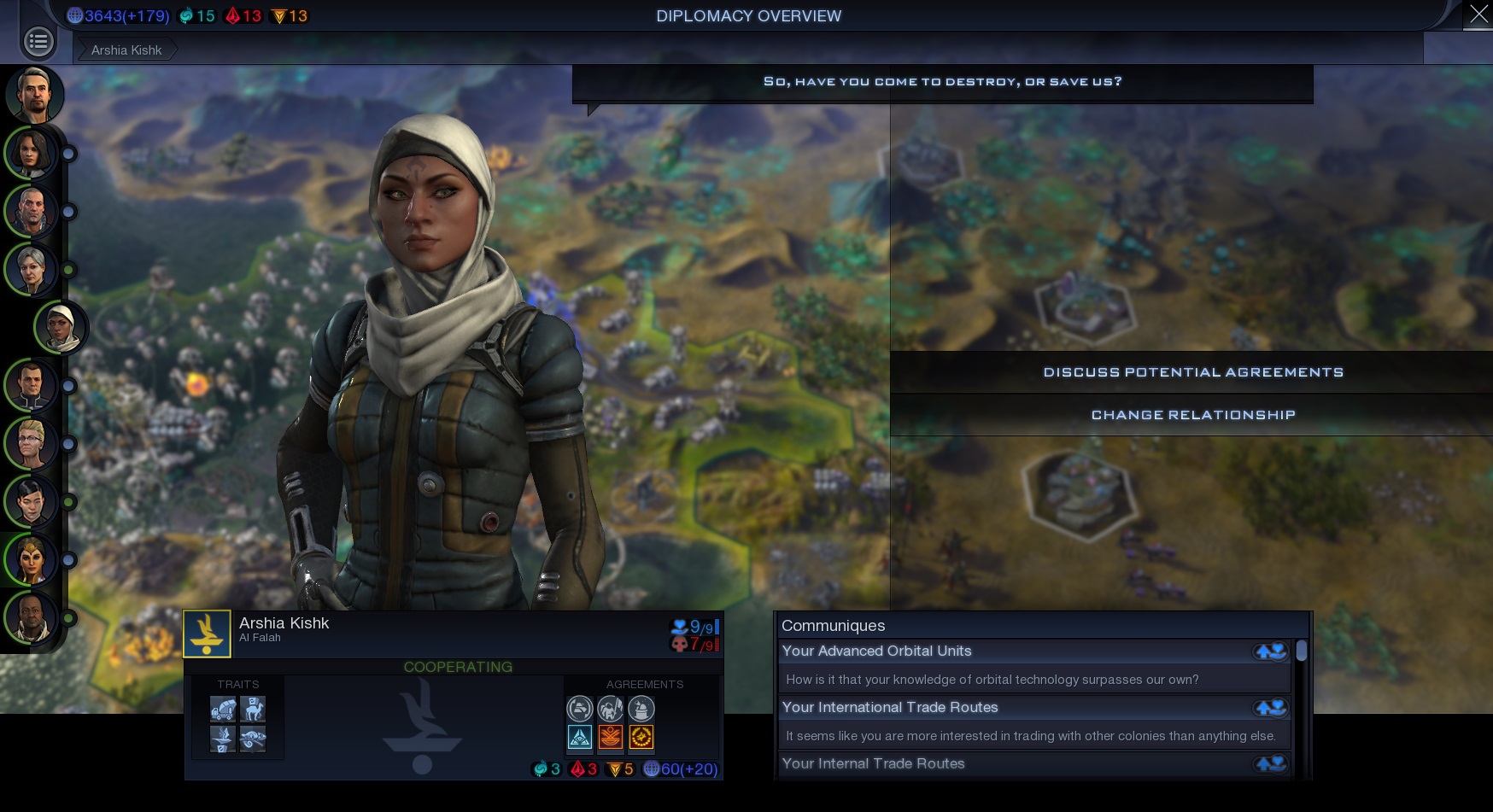 The new Al Falah civilization.rn
The new Al Falah civilization.rn -
Rising Tide Screens #3
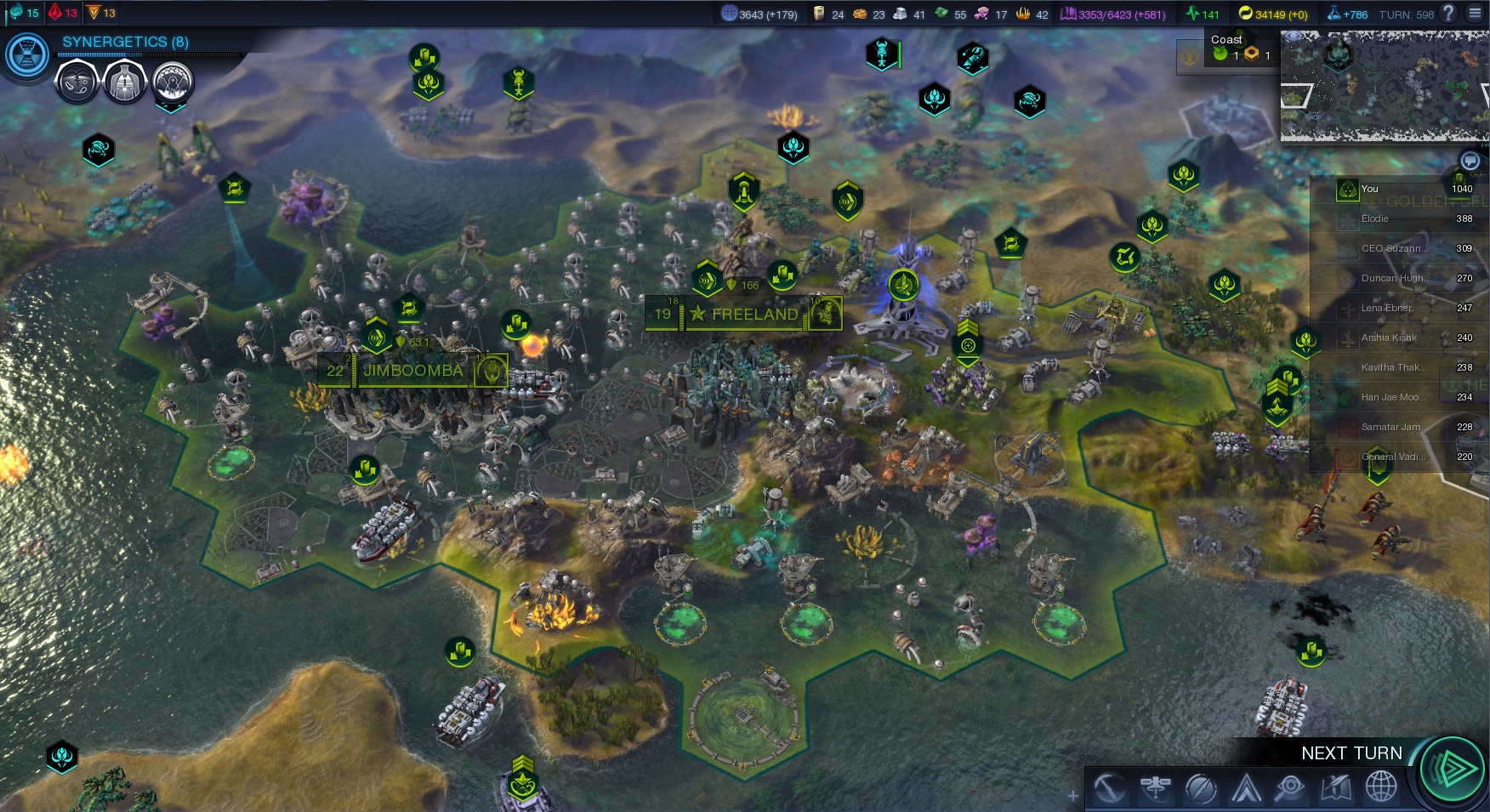 Cities in the field, one land and one aquatic.rn
Cities in the field, one land and one aquatic.rn -
Rising Tide Screens #4
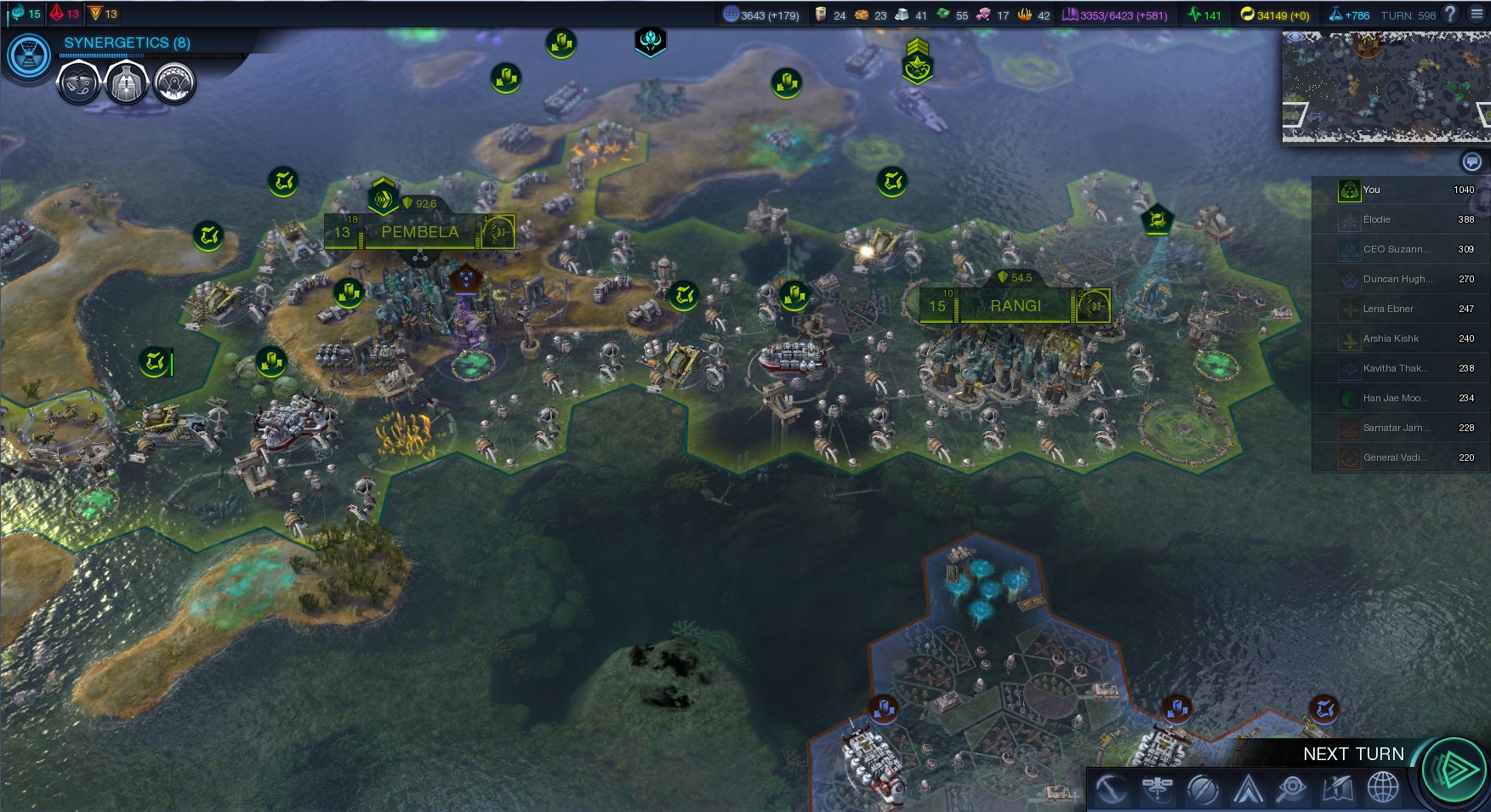 More cities in the field, one land and one aquatic.rn
More cities in the field, one land and one aquatic.rn -
Rising Tide Screens #5
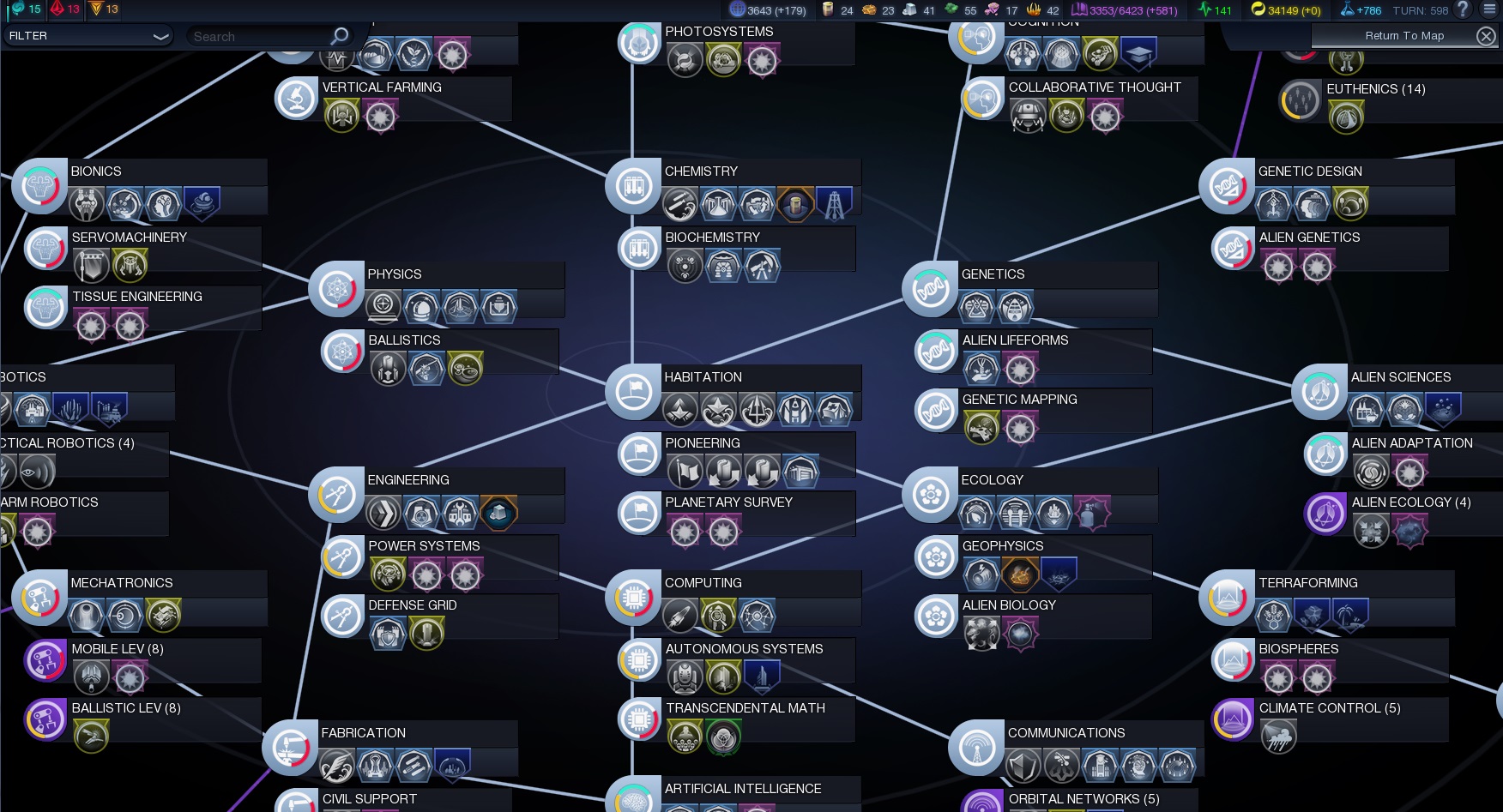 New tech web.rn
New tech web.rn -
Rising Tide Screens #6
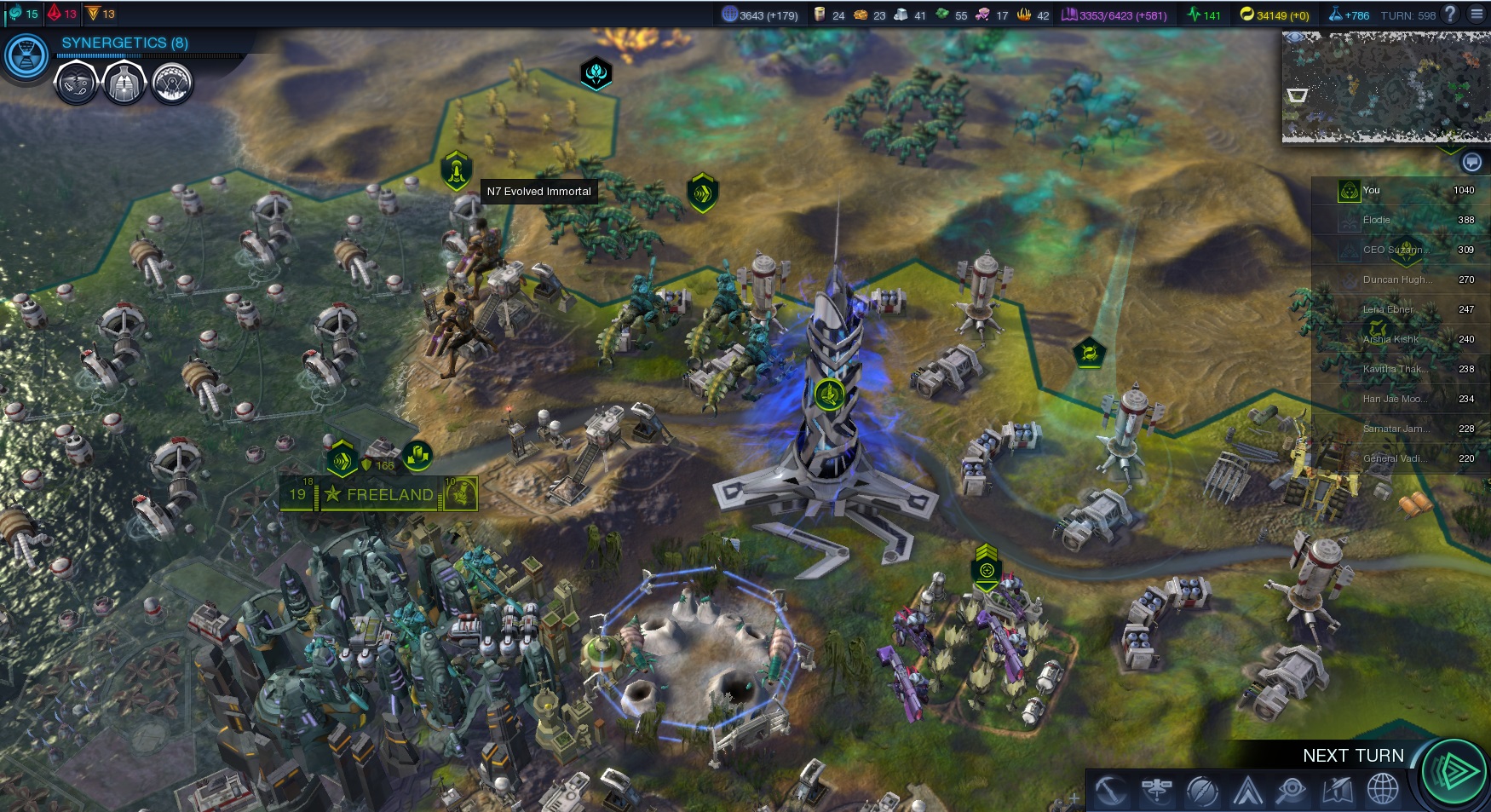 Close-up of units and tile improvements.rn
Close-up of units and tile improvements.rn -
Rising Tide Screens #7
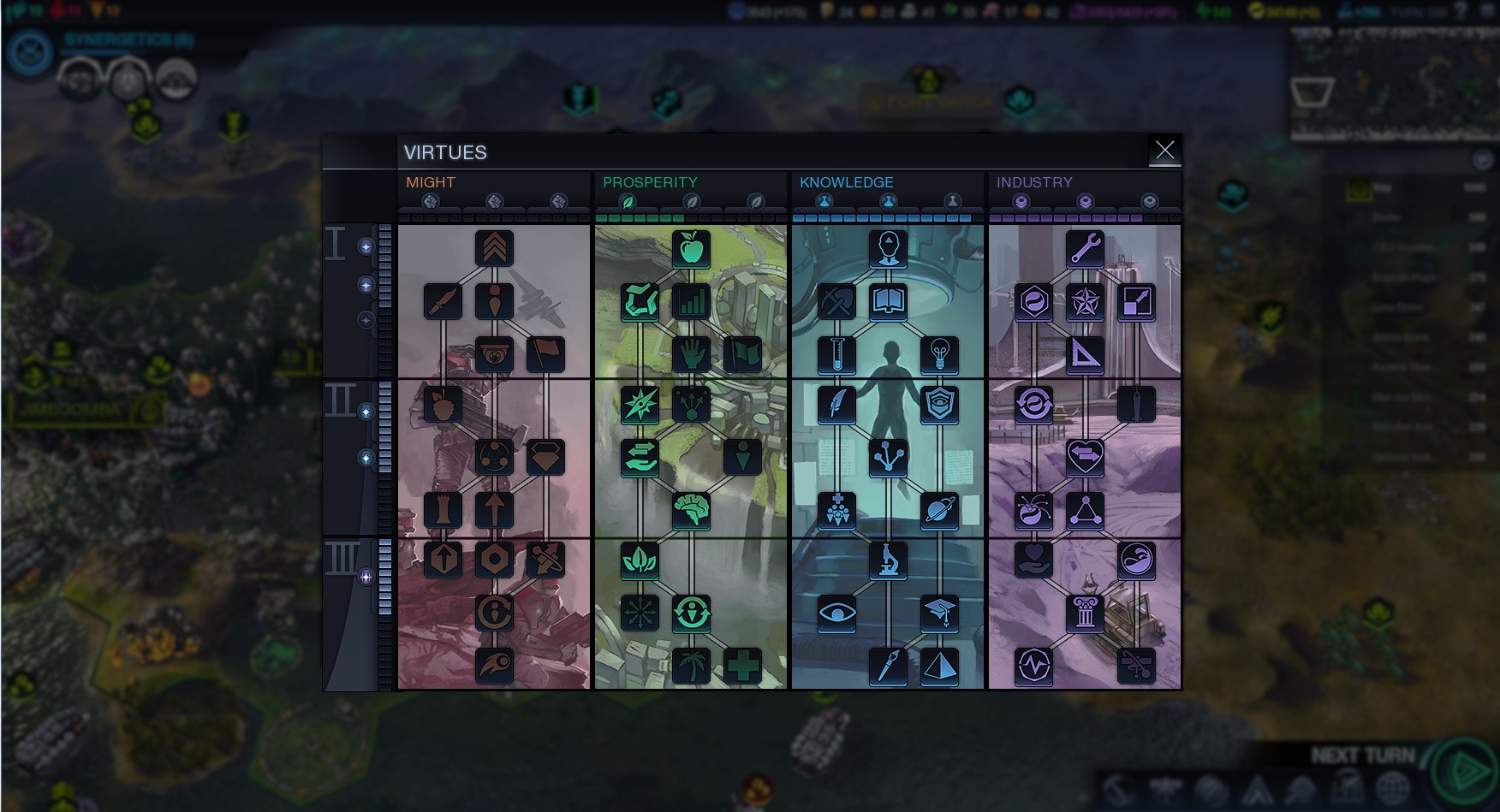 New look for virtues.rn
New look for virtues.rn -
Rising Tide Screens #8
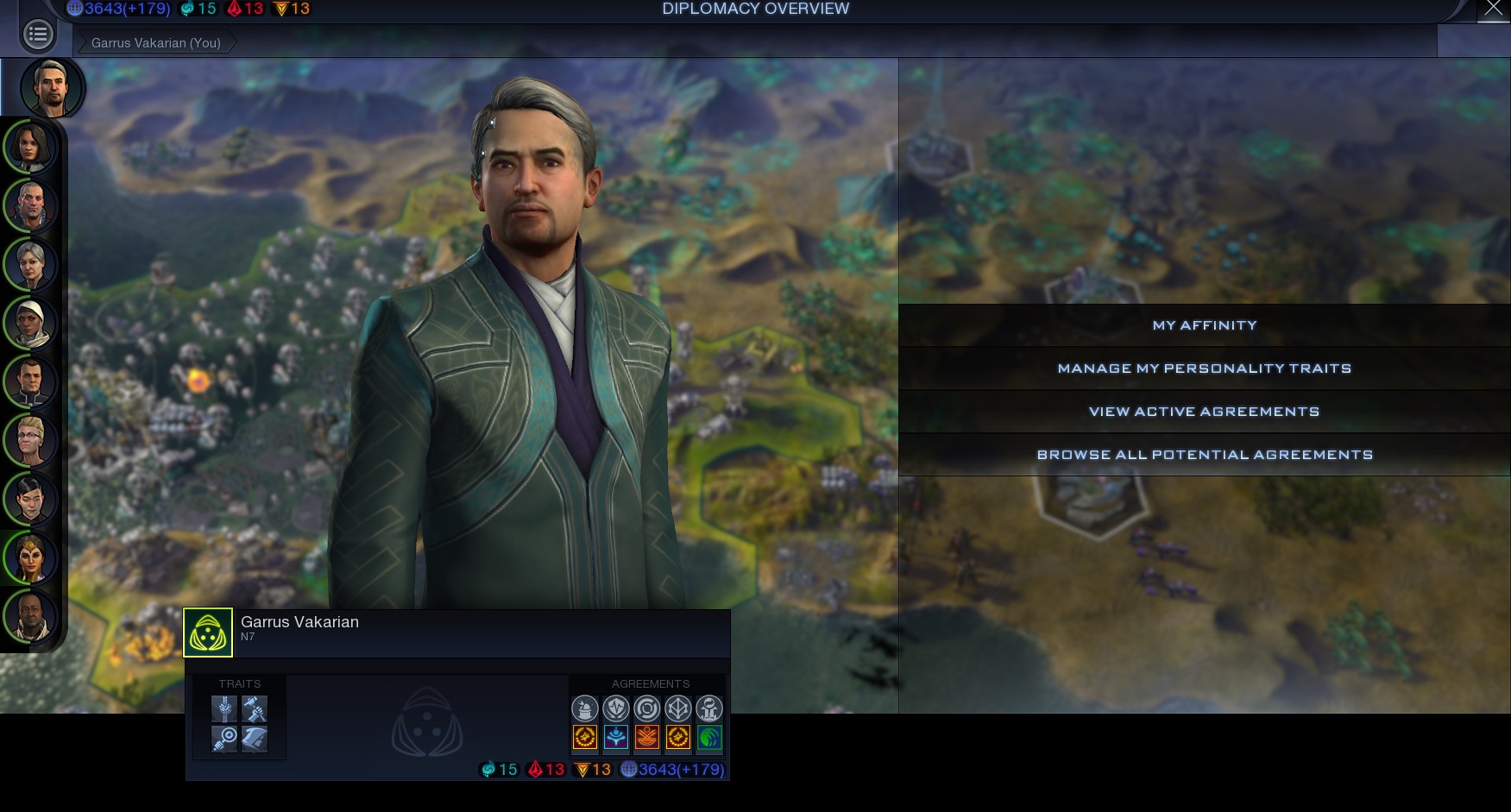 Diplomacy screen.rn
Diplomacy screen.rn -
Rising Tide Screens #9
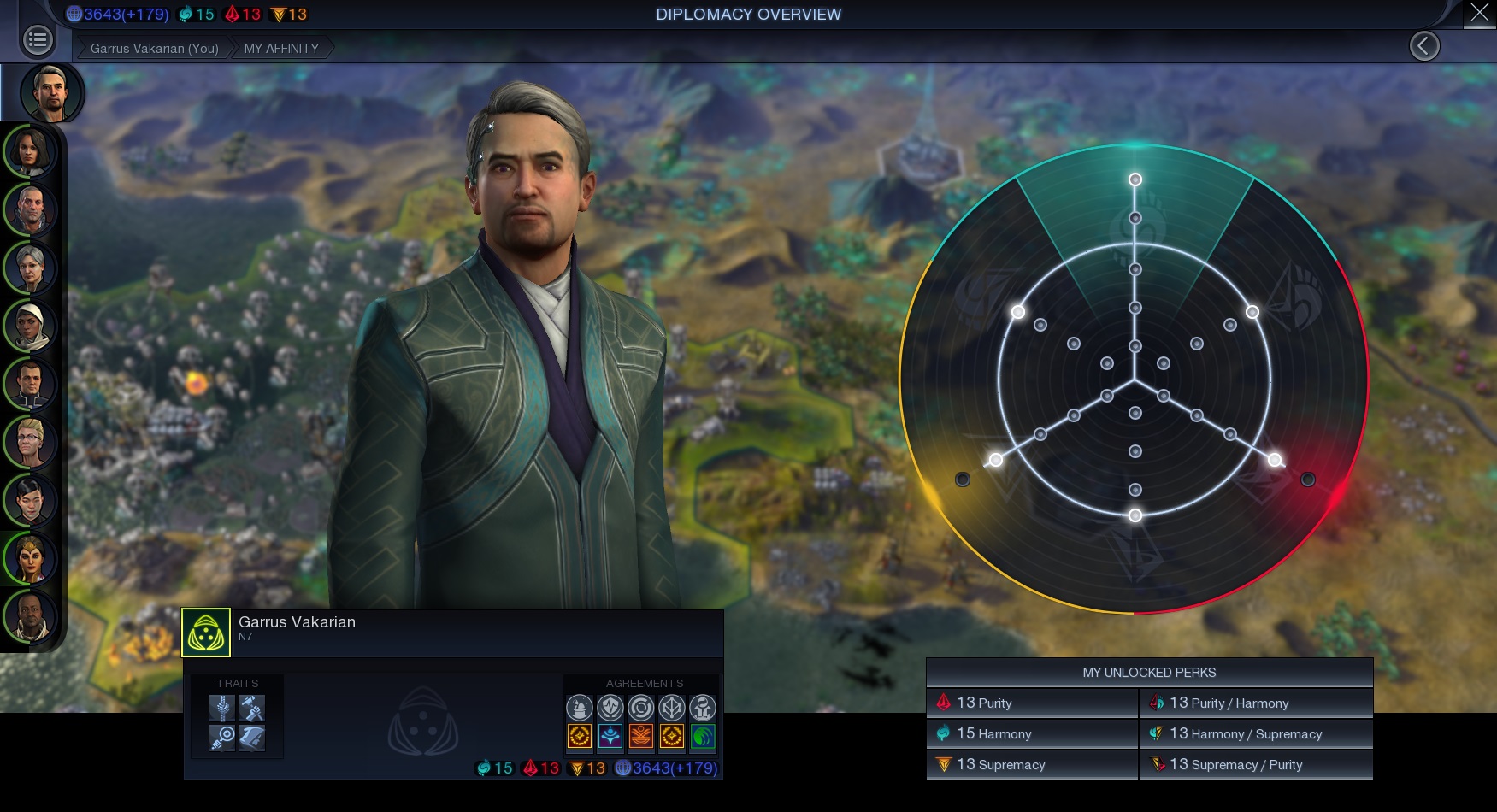 Affinity wheel with hybrid perks.rn
Affinity wheel with hybrid perks.rn -
Rising Tide Screens #10
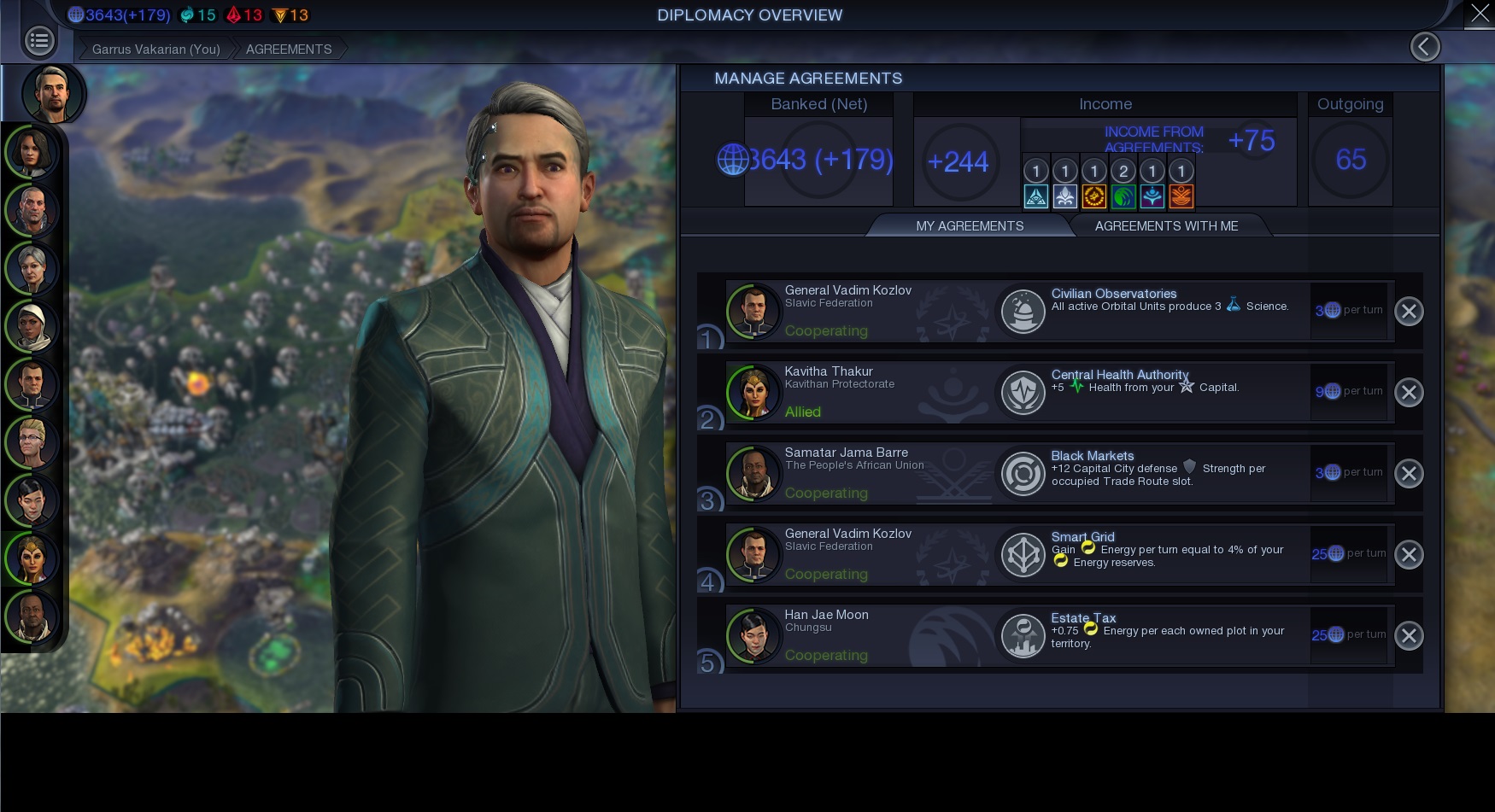 A list of diplomatic trade agreements.rn
A list of diplomatic trade agreements.rn







